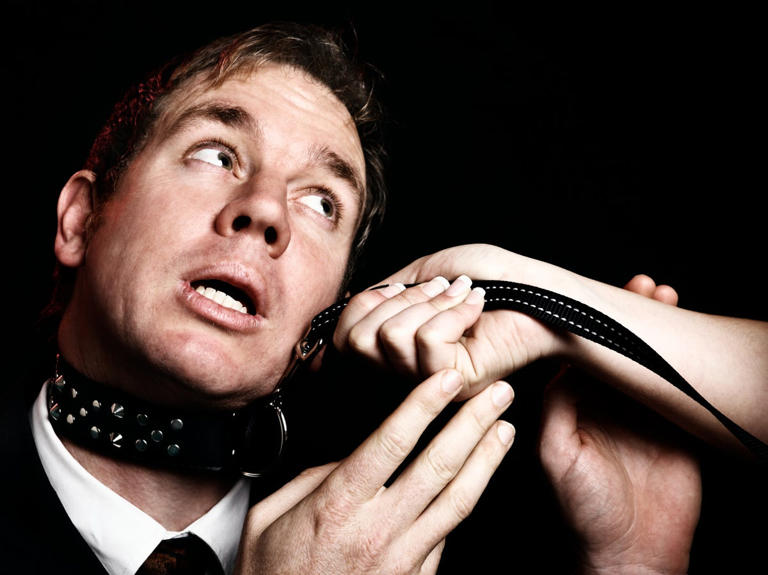
Building intimacy in a relationship is a complex process and believe it or not, there are many different types of intimacy. Intimacy with another person requires self awareness, compassion and vulnerability and once you’ve achieved that all-important closeness with that person, you have to work at maintaining it too.
According to Psychosexual therapist, BBC One’s Sex on the Couch presenter and author of audiobook 12 Steps to Sexual Connection, Lohani Noor, there are two fundamental types of intimacy in a romantic relationship: sexual intimacy and emotional intimacy. They’re connected, because without emotional intimacy it can be hard to connect with your partner physically, but they’re not the same thing.
Emotional intimacy is all about getting to know your partner on a deeper level, making sure that you each feel safe and secure, being able to communicate clearly and building trust so that you can be your most vulnerable selves with each other.
What is emotional intimacy?
“We need emotional intimacy. As humans, we are hard-wired for connection.” explains clinical social worker, Debbie Radzinsky. “Emotional intimacy brightens our mood by activating feel-good neurotransmitters: oxytocin, endorphins, dopamine, and serotonin. Intimacy can even extend our life expectancy.”
When we feel connected to others it makes us feel good, promoting feelings of calm and contentment. But often, we can find it difficult to tap into this connectedness. “But,” says Radzinsky. “emotional intimacy in a relationship doesn’t just happen spontaneously. Building and maintaining emotional intimacy takes time.”
Talking about your feelings, especially in a new relationship can be challenging. It’s not easy to just open up, particularly if you don’t fully trust the person you’re dating. And this trust might not be possible for you, if you struggle with attachment for any reason.
Intimacy can be difficult for those who find it difficult to communicate their feelings or be vulnerable with others and Noor explains that these issues usually begin in childhood. The good news is that we can unlearn what we know and reset our brains and behaviours to build more healthy intimate relationships, it just takes time.
Issues with emotional intimacy
“When you’re little you might think you’ve got a really good strategy for getting your needs met. And you’ll scream until you’re sick.” says Noor. “And someone comes and picks you up and it works. It works because it’s acceptable when you’re four. Unfortunately, our parents don’t teach us how to ask for what we want in a more meaningful way. We understand that on a primal level, [screaming is] the strategy for getting what we want. So then when we’re an adult, and in a difficult relationship, and we’re really struggling, we’ve got no reference point and no internal narrative around these difficult emotions, so we might decide to act out in a very similar way to how we did before.”
It’s no wonder that as adults we can find it so difficult to ask for what we really want. Instead, in relationships we may act out in some irrational way involving shouting, sulking or breaking things. “It [feels] easier to do that in the hopes that the other person will say, ‘Oh, I get it, you want me to love you right now.’ But it doesn’t work, does it? Because you’re an adult, and it’s not acceptable,” she says.
Shutting down emotionally, going silent or acting out and shouting are all mechanisms we use in adulthood to convey emotions when we’re not sure how to connect with others and ask for what we actually need. Similarly, we might be defensive if our partner asks us for something because we might not feel worthy or capable of giving it to them. Our communication has to work both ways to build healthy, regulated emotional intimacy and it starts with being unafraid to say how we really feel and feeling able to listen to our partners and confident to try to give them what they need from us.
How to maintain emotional intimacy
Set your intention
You both have to want to work on your intimacy, and setting a goal or intention can help you to do this. For instance, you may want to feel like you can trust your partner more, you may want them to feel like they can confide in you or you may wish to feel more supported by them when you are struggling with something. Setting this intention before you have conversations about your relationship can help with getting you to where you want to be.
Listen to each other
Listening is a great skill and it isn’t simply waiting for your turn to talk. Instead of focusing on everything you disagree with or taking everything your partner says personally, try to actively listen to everything they have to say and consider it all before you reply. Mentally process what they are saying and try to define what they are asking for from you. This can be challenging, especially in the beginning, but listening to one another calmly and actively is the first step to being truly emotionally intimate. Your partner will feel much more able to trust you if you can listen to them without interrupting, getting defensive or losing your temper and the same applies when they are listening to you.
Use ‘I’ statements
When communicating with a partner, use “I” statements instead of “you” statements. Such as: “I feel like X when X happens” as opposed to “You made me feel like X”. Noor explains this is about “being accountable for your own feelings and not making them about the other person.” She adds, “Simply recognising that somebody doesn’t make you mad. They might invite you to feel mad, but it’s an invitation that you can refuse. It’s really taking ownership of what’s going on for you and [communicating that] rather than acting it out. So rather than escalating the situation, say, ‘I feel really crazy angry right now’. Just that difference massively changes whether or not your partner can hear you.”
Use empathy as a superpower
Being able to relate to one another’s feelings is a core pillar of emotional intimacy. Understanding how your partner may be feeling and inviting them to relate to how you are feeling builds deeper intimacy and ultimately makes it easier to care for one another, even during challenging times where you might not be acting like yourselves.
Empathy is an incredible tool and a strength in every relationship, whether that’s your romantic partnerships, your family dynamics, friendships or even at work. Putting yourself in someone else’s shoes and trying to experience the world from their perspective can help you understand them better, feel closer to them and earn their trust. It can also help to de-escalate stressful situations and potential conflicts.
When words fail you, use tools
If talking about your feelings is too much at any point, you can turn to helpful relationship tools that will help you to organise your thoughts and structure your approach to intimacy. Couple’s counselling and therapy can be a great way to connect with your partner because a trained professional will be able to guide your conversations and help you uncover the issues that are making communication difficult.
You can also try relationship apps that give you daily prompts and games to play, which takes the serious edge off having these conversations and can help you to be vulnerable in a way that feels more fun for you both. There are also physical games you can play, like couple’s card games and question games. Activities like these will help you to connect, laugh together and get to know each other better, without the feeling that you’re both “doing work”.
Story by Emilie Lavinia:Cosmopolitan




